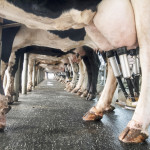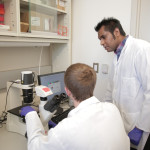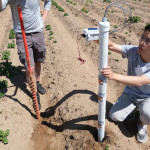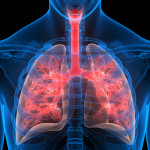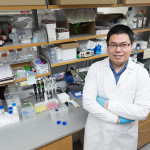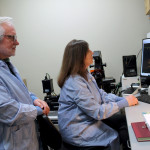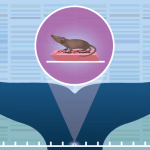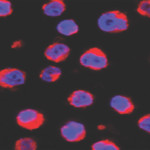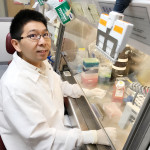Tag Research
A stealth fungus has decimated North American bats but scientists may be a step closer to treating white-nose syndrome
Scientists have discovered how an invasive fungus that colonizes the skin of hibernating bats gains entry and covertly hijacks cells, taking an important step toward treatment of white-nose syndrome. Read More
Lake and river foams study reveals high PFAS levels, even though underlying water may be less contaminated
Thirty-six different kinds of PFAS compounds were analyzed in samples of both the foams and water surface microlayers of 43 Wisconsin rivers and lakes. Read More
Raw milk is risky, but airborne transmission of H5N1 from cow’s milk is inefficient in mammals.
New research suggests that exposure to raw milk infected with the currently circulating virus poses a real risk of infecting humans, but that the virus may not spread very far or quickly to others. Read More
Serendipity reveals new method to fight cancer with T cells
Cells treated with “metabolic priming” retained their stem cell-like qualities, thus enhancing their ability to kill cancer cells, transform into durable memory cells, and survive longer in the body. Read More
Printed sensors in soil could help farmers improve crop yields and save money
The researchers’ new sensors could also be used as an agricultural research tool to monitor nitrate leaching and help guide best practices for mitigating its harmful effects. Read More
UW–Madison leading new research collaboration aimed at treating lung scarring diseases
An interdisciplinary group of researchers will will investigate the biological processes that promote lung scarring. With the aid of artificial intelligence and advanced 3D modeling, they will also develop and refine new imaging techniques and drug delivery systems that could aid in halting its progression. Read More
Wolves reintroduced to Isle Royale temporarily affect other carnivores, humans have influence as well
While many studies have been conducted to understand the effects of a carnivore reintroduction on their prey, less well studied is the effect of the reintroduction on other carnivores in the same food web, in this case foxes and martens. Read More
UW–Madison scientists develop most sensitive way to observe single molecules
The new method could have implications for pursuits as varied as drug discovery and the development of advanced materials. Read More
Pancreatic cancer is difficult to treat. Nano-drugs hitching a ride on bacteria could help.
Mice treated with the therapeutic-laden bacteria experienced delayed tumor growth and significantly longer survival compared with mice that received other treatments. Read More
These jacks-of-all-trades are masters, too: Yeast study helps answer age-old biology question
Researchers mapped the genetic blueprints, appetites, and environments of more than 1,000 species of yeasts, building a family tree that illuminates how these single-celled fungi evolved over the past 400 million years. Read More
Nanomaterial that mimics proteins could be basis for new neurodegenerative disease treatments
The work centers around altering the interaction between two proteins that are believed to be involved in setting the stage for diseases like Alzheimer's, Parkinson's and amyotrophic lateral sclerosis, or ALS. Read More
Undergrads embrace opportunity to showcase research at symposium
Two of UW–Madison’s key missions meet at the Undergraduate Symposium: leading-edge knowledge discovery and quality undergraduate education. Read More
Researchers reveal evolutionary path of important proteins
New research from the University of Wisconsin–Madison decodes the evolutionary pathway of regulatory proteins, the molecules that help control gene expression. Read More
Some lymphomas become resistant to treatment. Gene discovery may offer path to overcome it.
Researchers have been trying to understand why and how certain lymphoma treatments often stop being effective. Lixin Rui and his team believe they've found the reason — and a potential alternative treatment. Read More
The eyes are a gateway to evolution… of daddy longlegs at least.
While some people may first associate daddy longlegs with well, their legs, researchers from the Department of Integrative Biology have been especially focused on the arachnids’ eyes and what they can tell us about their evolution. Read More
New toolkit helps scientists study natural cell death
Taking advantage of the unique biochemical properties of protein fragments, their tool uses less expensive, more efficient, off-the-shelf chemical compounds to help identify sites where proteins were cut. Read More
Programming cells to organize their molecules may open the door to new treatments
Biochemists at UW–Madison have developed a tool to control how certain proteins move in mammalian cells, a discovery that has multiple potential uses for treating or studying diseases by engineering specific cellular activities or studying cellular activity in a living organism. Read More
UW–Madison researchers first to 3D-print functional human brain tissue
It’s an achievement with important implications for scientists studying the brain and working on treatments for a broad range of neurological and neurodevelopmental disorders, such as Alzheimer’s and Parkinson’s disease. Read More
These tomatoes are out of this world… or they will be soon
By sending tomato plants to the International Space Station, UW researchers hope to better understand how plants grow without gravity and whether there are ways to help plants cope with the stressors involved with growing in space flight. Read More



